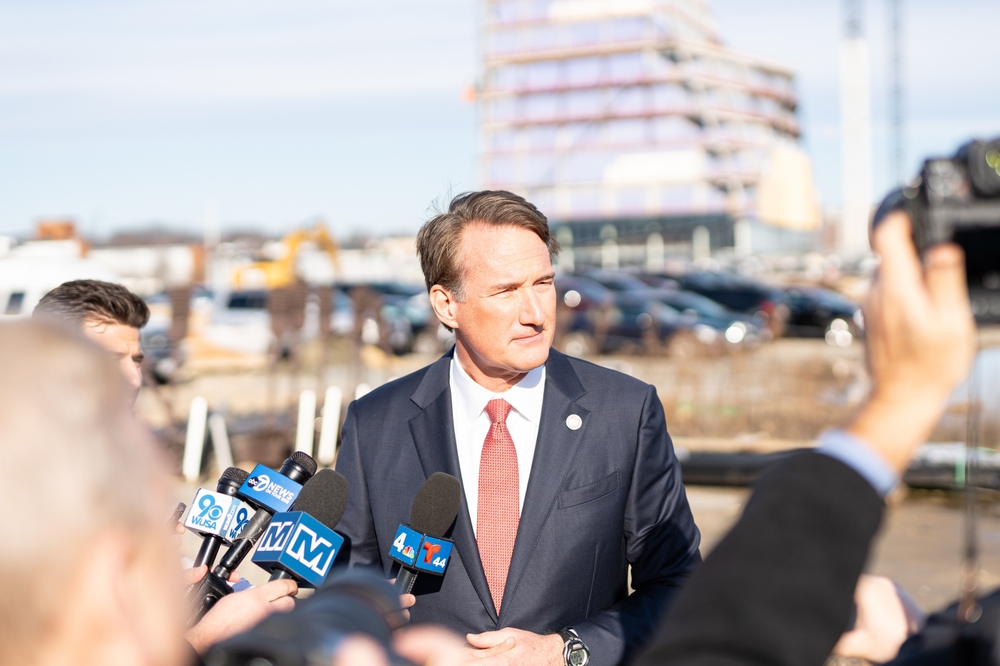


Those who get rich off of turning young Americans into addicted losers who contribute nothing to society have met a roadblock: Virginia Gov. Glenn Youngkin.
On Thursday, Youngkin vetoed a bill that would have legalized the sale of marijuana in the state of Virginia. His explanation for the veto summarizes well the negative consequences faced by other states that have legalized marijuana: “States following this path,” he said, “have seen adverse effects on children’s and adolescents’ health and safety, increased gang activity and violent crime, significant deterioration in mental health, decreased road safety, and significant costs associated with retail marijuana that far exceed tax revenue.”
Youngkin’s recognition of the obvious — that marijuana legalization is demonstrably bad for society — is sorely needed at this time when the marijuana industry deploys endless lobbyists and PR campaigns to claim that legalization has a net benefit. Spoiler alert: it doesn’t.
Marijuana’s harmfulness starts with just that: it is inherently harmful. According to the Yale School of Medicine, 30 percent of marijuana users have cannabis use disorder, i.e., they are addicted to the drug. Another study published in the International Journal of Drug Policy has found that 44.7 percent of people who have smoked marijuana have gone on to use other illegal drugs. (And yes, marijuana is still illegal under federal law, as it is classified as a Schedule I drug.) According to the Department of Health and Human Service’s Substance Abuse and Mental Health Administration, marijuana use is linked to “depression, anxiety, suicide planning, and psychotic episodes,” and people who use marijuana are more likely to have “relationship problems, worse educational outcomes, lower career achievement, and reduced life satisfaction.” Marijuana is also not helpful as a medical treatment. Cannabis has never been shown to be beneficial for the ailments it is often used to treat: pain, depression, and anxiety.
Glenn Youngkin rightly drew attention to the negative consequences states that have legalized marijuana have experienced. These consequences are well-documented. According to the Journal of Criminal Justice, recreational marijuana legalization has increased property and violent crime in Oregon. In addition, Colorado’s Department of Public Safety noted in 2021 that, since legalization, the state had seen an increase in “marijuana-related hospitalizations, Emergency Room visits, poison control calls, DUIs, and fatal crashes where drivers tested positive for cannabinoids.” There is also the fact that legalization of marijuana increases usage of the drug among minors, who are particularly negatively affected by the drug. In fact, people who use marijuana as adolescents can experience a permanent loss of up to eight IQ points. They are also at risk for developing psychosis and schizophrenia.
Marijuana lobbyists have long claimed that legalization will create a cash cow of revenue for states. There has been doubt cast on this claim, however. A study published in the National Tax Journal concluded that cannabis revenues “cannibalize” other tax revenues since legalizing cannabis results in a 15 percent decrease in sales of alcohol and a 5 percent decrease in the sale of cigarettes. In addition, there are the numerous other costs states must take on when they let people run wild with a dangerous and extremely addictive drug, including increased policing costs. States have also been surprised by the low amount of revenue generated by cannabis sales. For example, California has had to make changes to its budgets after expected tax revenues from cannabis have been well below expectations.
Glenn Youngkin is one of the few governors to see the light in a country full of state politicians working to legalize marijuana or who have already done so. Much of the responsibility for this movement lies with another governor, California Gov. Gavin Newsom. When Newsom was lieutenant governor of California, he was one of the first politicians to come out in favor of marijuana legalization. From there, he spearheaded a committee whose purpose was to demonstrate that marijuana legalization could be implemented in a way that minimizes any potential harms for society. That committee was influential in convincing other states that marijuana legalization could be safely adopted at a time when it was becoming clear that many harmful consequences were resulting from legalization.
Youngkin says he never even considered signing the bill to legalize pot.
When he was asked last week whether he would do so, he responded: “Anybody who thinks I’m going to sign that legislation must’ve been smoking something.”
Bravo, Glenn Youngkin.
READ MORE:
Virginia College Announces Students Can Major in ‘Cannabis Studies’
